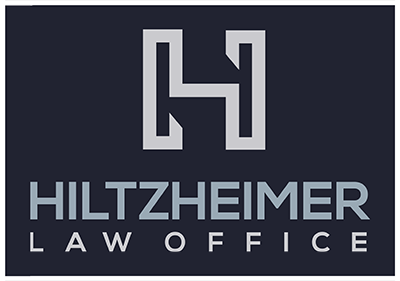Larceny and Shoplifting Defense Attorney in Durham, NC
Theft crimes in North Carolina range from misdemeanor shoplifting, to concealment, to misdemeanor and felony levels of larceny. The penalties vary widely, but even in a minor shoplifting case, the potential consequences can be severe. A conviction will give you a criminal record that can affect employment and future educational options, in addition to the criminal penalties themselves. Your prior record (or lack thereof) can dramatically affect the outcome in larceny cases, as well as the nature of the alleged theft, the value of the items allegedly stolen, and whether, for example, any security devices may have been removed prior to the alleged theft. You’ll need an experienced Durham theft & larceny attorney in your corner to help you navigate the process, whether you’re interested in negotiating a deal or taking the case to trial.
Collateral Consequences
In addition to the criminal penalties for theft charges, a conviction can haunt you for the rest of your life. It may limit your ability to get a new job, or advance in your current position. It may prevent you from being accepted into the college or other educational program that would allow you to advance in your career. Choosing the right attorney at the outset of your case may be one of the most important decisions of your life.
Penalties for Misdemeanor Theft Crimes

The penalties for larceny, shoplifting, and related crimes in North Carolina can include court fines, restitution, probation, and even jail time. Not to mention a permanent criminal record. Attorney Hiltzheimer understands the seriousness of a criminal charge to the individual, and will work hard to minimize the consequences to you — including obtaining an outright dismissal if there is a way to achieve that optimal outcome in your case.
Shoplifting vs. “Concealment”
In North Carolina, the shoplifting statute defines the crime of shoplifting as “concealment” of goods while remaining on the premises of a retail establishment. In other words, you don’t have to leave the store — or even attempt to leave, or intend to leave — to be charged with shoplifting. That means that you could, in theory, be charged with shoplifting under North Carolina law by placing groceries into your own reusable bag in your cart — even when you fully intend to pay for everything at checkout — because you “concealed” items in a bag while remaining on the premises of the store. Clearly the legislature crafted the language of the shoplifting statute to make it very easy for stores to prosecute these cases, even when the accused may be entirely innocent of any unlawful intent.
Transferring of Price Tags
Transferring of a price tag from one item to another in order to receive a discounted price is also a criminal offense under the shoplifting law in North Carolina. Similarly, altering the price marking (for example, with a pen, or by applying your own price tag) will trigger the same criminal charge.
Use of Lead- or Aluminum-Lined Material to Conceal
The above-referenced offenses are all classified as misdemeanors in North Carolina, but if you are alleged to have used a lead-lined or aluminum-lined item — for example a bag, or a pocket — to prevent anti-theft security devices from triggering an alarm, you will be charged with a Class H felony.
Here is the relevant NC code governing the range of shoplifting charges described above:
- § 14-72.1. Concealment of merchandise in mercantile establishments.
- Willfully concealing merchandise within a store.
- First offense, Class 3 misdemeanor. Mandatory 24 hours community service if jail sentence is suspended.
- Second offense within three years, Class 2 misdemeanor. Mandatory 72 hours community service if jail sentence is suspended.
- Third or subsequent offense within five years, Class 1 misdemeanor.
- Use of lead or aluminum bag, pocket, or “similar” device to prevent activation of anti-theft device, Class H felony.
- Willfully concealing merchandise within a store.
Penalties for Felony Theft Crimes
Certain theft crimes are charged as felonies in North Carolina. Felony theft charges include shoplifting when it is alleged that an anti-theft or other security device was tampered with in the commission of the alleged theft when force is used to take items from another individual, and when the value of the alleged items exceeds a certain amount.
Embezzlement
Embezzlement is a separate category of theft in North Carolina that relates to the relationship of the individual accused of the theft to the alleged victim. For example, theft by a trustee from a fund, or theft of state property by a state official. Anyone in such a position who embezzles goods or property may face felony criminal charges, with a range of potential penalties depending on the value of the money or property and the specific relationship. Some of the specific crimes classified under the North Carolina code are as follows:
- § 14-90. Trustees, fiduciaries, others exercising a public trust. If the value of the embezzled money/property is $100,000 or more, a Class C felony. If under $100,000, a Class H felony.
- § 14-91. Public employees, including city and state government workers, and public officials, embezzling state property. If the value of what was embezzled is $100,000 or more, a Class C felony. If under $100, 000, a Class F felony.
- § 14-92. Public officers and trustees. If the value of what was embezzled is $100,000 or more, a Class C felony. If under $100, 000, a Class F felony.
- § 14-93. Treasurers of charitable and religious organizations. If the value of the embezzled money/property is $100,000 or more, a Class C felony. If under $100,000, a Class H felony.
- § 14-94. Officers of railroad companies. If the value of the embezzled money/property is $100,000 or more, a Class C felony. If under $100,000, a Class H felony.
- § 14-97. Appropriation of partnership funds by partner to personal use. If the value of the embezzled money/property is $100,000 or more, a Class C felony. If under $100,000, a Class H felony.
- § 14-98. Embezzlement by surviving partner. If the value of the embezzled money/property is $100,000 or more, a Class C felony. If under $100,000, a Class H felony.
- § 14-99. Embezzlement of taxes by officers. If the value of what was embezzled is $100,000 or more, a Class C felony. If under $100, 000, a Class F felony.
Larceny by Employee
“Larceny by Employee” is treated as a separate offense from embezzlement in North Carolina, though there can be overlap between the charges as defined in the North Carolina code. The penalties are very similar, but the state legislature decided to carve out two separate offenses. The potential penalties are as follows:
- § 14-74. Larceny by employee. If the value of what was embezzled is $100,000 or more, a Class C felony. If under $100,000, a Class H felony.
Potential Defenses to Shoplifting Charges
While the shoplifting statute in North Carolina does not require “criminal intent,” it does require willfulness with respect to the concealment of the goods in question. A potential defense may be that you placed an item into a stroller, or purse, or reusable shopping bag without the actual intent to conceal. Such inadvertent actions happen every day, but in North Carolina, you could be prosecuted for an entirely innocent act. The State, however, has the burden of proof in a criminal trial, and if we can persuade the judge that the State has failed to establish the willfulness of the concealment in a shoplifting case, the court would be required by law to return a verdict of Not Guilty. There may be other defenses available, depending on the specific facts of your case.
Protecting Your Rights
If you are charged with shoplifting, or any criminal charge, you have the right to remain silent, and in almost every scenario it is in your interest to take advantage of that right. In no case should you confess to committing any criminal act without an attorney present and without the advice of that attorney. If you invoke your right to remain silent, as opposed to “coming clean” to the authorities on the scene, you will give the State one less piece of evidence to use against you in the prosecution of your case. And if you retain an experienced trial lawyer from Hiltzheimer Law Office, we will meticulously evaluate your case for every possible defense.
Deferred Prosecution
If you are charged with a theft charge, shoplifting, or otherwise, in North Carolina, and you have no prior criminal record, you may be eligible for a deferred prosecution agreement. Hiltzheimer Law Office has successfully negotiated deferred prosecution agreements for numerous clients in a wide range of misdemeanor and felony cases. If you are fortunate enough to be accepted into a deferred prosecution agreement, and you successfully complete the terms, your case will be dismissed in its entirety upon completion of the program — typically community service, a probationary period, and restitution in some circumstances.
Expungement of Shoplifting Charges
Many people mistakenly believe that if their shoplifting or other theft charge is dismissed, their record is clean. But if an employer, school, or government agency runs a comprehensive criminal record check, they will be able to see that you were charged with a crime. While it may seem unfair, some employers will decline to hire an individual just because he or she was previously charged with a crime. As a result, you may want to consider petitioning the court for an expungement, if you are eligible, which effectively wipes your record clean after securing a dismissal of the charge.
Call Our Office for a Free, Confidential Consultation
Call our larceny & theft defense attorney if you have been arrested or charged with any misdemeanor or felony offense in Raleigh or Durham, North Carolina. Contact us today for a free, confidential consultation and case evaluation at (919) 899-9404.

 Reviews
Reviews